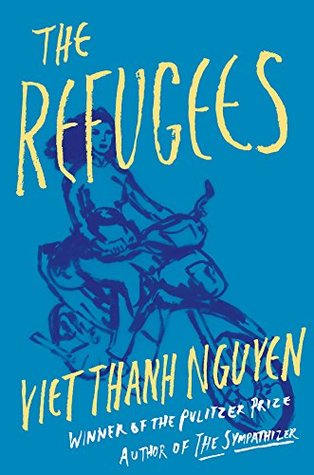More on this book
Community
Kindle Notes & Highlights
“The dead move on,” he had said, coiled in his armchair, hands between his thighs. “But the living, we just stay here.”
“That’s the way you see things,” said Arthur, lifting a squab by its slender little leg. “But don’t you think you’re just telling yourself what you want to hear?” “Of course I’m telling myself what I want to hear!” Louis shook his head in mock exasperation, his eyes wide behind his sculptural Dolce & Gabbana eyeglasses. “We all tell ourselves what we want to hear. The point, Arthur, is this: Do you want to hear what I’m telling myself?”
Dr. Viswanathan had said that there would always be a risk of rejection, and the resulting sense of unease weighed on Arthur, the daily reminder of the alien within him that was delivered in quadruplicate form via these pills, even the fourth and final one that he somewhat enjoyed, the antidepressant. Although it was good for filing down his emotional rough edges, it was not as satisfying as the painkillers he had taken in the immediate months after the transplant, dots of magic that made his skin feel like cotton under his own fingers. The antidepressant only restored in him a feeling of
...more
When we reached his bedroom, I had to help him take off his shirt and lie down, holding him by the shoulders while he braced his neck and head. I saw the six-inch scar on his chest that I’d sometimes seen as a child, after he’d come out of the shower with a towel around his waist. Since he never told us anything about what he’d done in the war, we made up stories about how he’d been shot through the chest, or stabbed by the husband of one of his mistresses. The scar was a vivid bolt of red lightning in my memory, angled between his sternum and his heart, but in the dim light of his bedroom, it
...more
For the first time in her life she felt pity for him, certain that it was not just her father who would break his daughter’s heart, but the daughters who would one day break his.
“But I was also one of those unfortunate cases who could not help but wonder whether my need for American charity was due to my having first been the recipient of American aid,” or so I wrote in my novel The Sympathizer. I am a bad refugee, you see, who can’t help but see that my good fortune is a stroke of bureaucratic luck and the racial politics of the United States, where Asians are considered model minorities. If I was Haitian in the 1970s and 1980s, I would not have been admitted as a refugee, because I was black and poor. If I was Central American today, I would not be admitted as a
...more
(and for the better; without immigration from non-white countries, American food would be as terrible as that of pre-immigration England).
In truth, my own family is an example of the model minority that could be used to rebut such an argument. My parents became respectable merchants. My brother went to Harvard seven years after arriving in the States with no English. I won the Pulitzer Prize. We could be put on a poster touting how refugees make America great. And we do. But it shouldn’t take this kind of success to be welcomed. Even if refugees, undocumented immigrants, and legal immigrants are not all potential billionaires, that is no reason to exclude them. Even if their fate is to be the high-school dropout and the
...more
The average American, or European, who feels that refugees or immigrants threaten their jobs does not recognize that the real culprits for their economic plight are the corporate interests and individuals that want to take the profits and are perfectly happy to see the struggling pitted against each other. The economic interests of the unwanted and the fearful middle class are aligned—but so many can’t see that because of how much they fear the different, the refugee, the immigrant. In its most naked form, this is racism. In a more polite form, it takes the shape of defending one’s culture,
...more
My naiveté protected me when I sat down to write at my small kitchen table and in that hot, stifling, first summer in Los Angeles began a short-story collection. If I had known that it would take me seventeen years to finish that collection, and three more years to publish it, perhaps I never would have even begun.
I began work on another scholarly book. Its evolution would run parallel to my fiction writing, and if I had known that this scholarly book on the memories of the Vietnam War would take fourteen years to be published, I probably would have chosen another subject. One reason it took so long was that it investigated literature, film, museums, memorials, politics, philosophy, and history. But even more challenging for me was that I wanted the book to be as much a creative work as a critical work, just as I wanted my fiction to be as critical as it was creative. But I didn’t know how to do this,
...more
Knowledge of this kind of ignorance leads to humility, and also to the awareness that what may seem useless, because it is not rewarded and recognized, might one day be of the greatest usefulness. Although this kind of seemingly useless work happens in the sciences, the burden of uselessness falls with greater weight on the arts and humanities in a world that increasingly values usefulness. When I became an English and ethnic studies double-major as an undergraduate twenty-seven years ago, I took a risk in studying things that a good number of people might think are useless. Perhaps my own
...more


